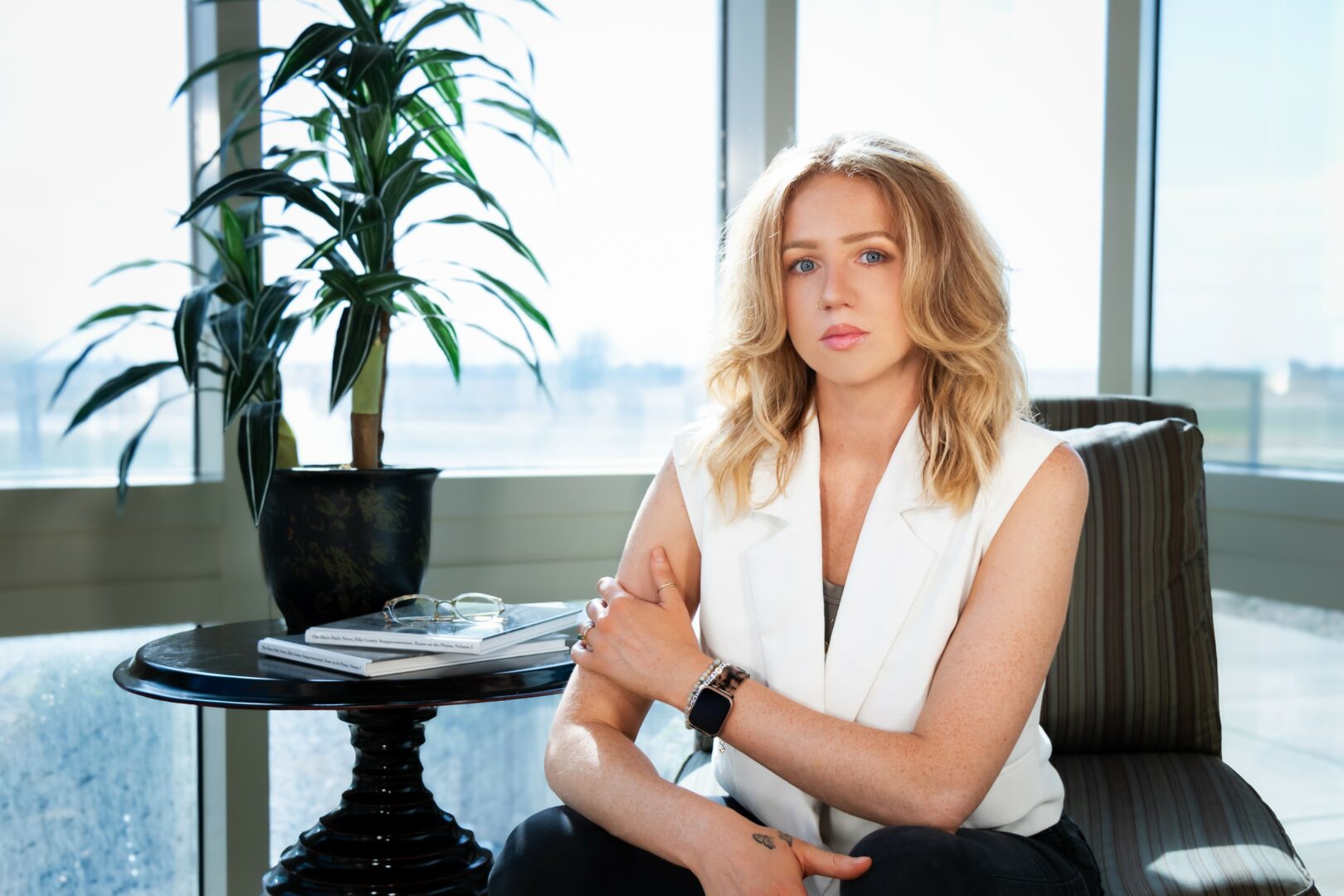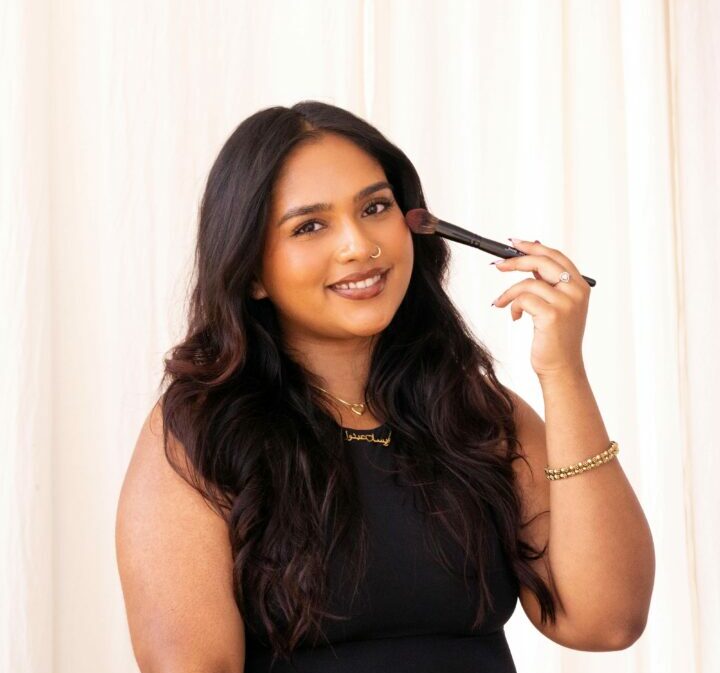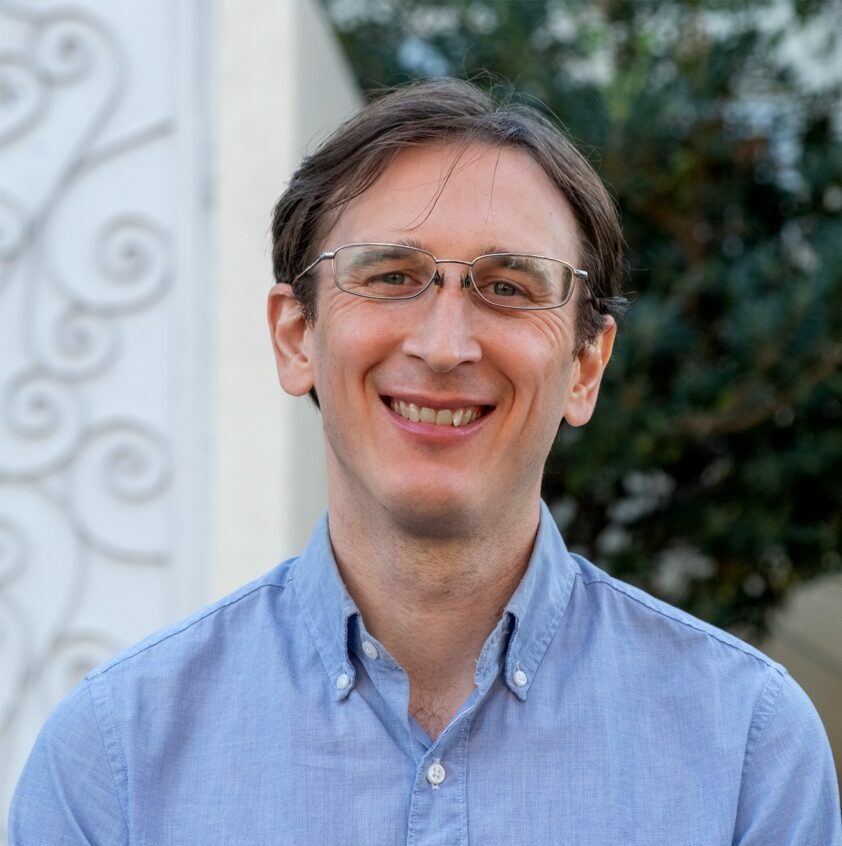We recently connected with Meryl K. Evans, CPACC and have shared our conversation below.
Meryl K., looking forward to learning from your journey. You’ve got an amazing story and before we dive into that, let’s start with an important building block. Where do you get your work ethic from?
Between being born profoundly deaf and having parents with a strong work ethic, you could say I was almost 100% guaranteed to have a good work ethic. Having a disability puts a person in the position of being the only one in the room who knows what it’s like to live with a disability and to encounter society’s barriers. The process of working around these barriers develops a person’s creative thinking skills.
One thing society tends to do with disabled people is to underestimate us. Their assumptions and beliefs become our reality. It doesn’t matter how hard we work or practice. If a hiring manager views me as incapable, then they won’t hire me. I could’ve ended up in a low paying job that doesn’t require much skill.
I never wanted anyone to view me as less than or not capable. Hence, I went out of my way to prove myself and work hard to master something. People from marginalized groups often say they must be better than their privileged counterparts. They should not have to give 110% when everyone gives 100%. But that’s the reality.
Despite all I’ve achieved in my career and community service, I still run into low expectations. I’d tell someone I applied for a job with their company. They’d say, “It’s a lot of work.” Are they saying they don’t believe I’m capable? I’ve been fortunate enough to have a diverse career that includes working in the federal government, corporate world, and small business. I’ve gained a lot of transferable skills. Despite this, it’s challenging to find leaders who believe in me.
This work ethic carries over all parts of my life. Even in the theatre. I’d start learning a dance right away. I’d watch videos over and over again. I’d get frustrated when I can’t master a step. Nonetheless, I keep at it. Eventually, I’ll have the dance memorized and can do it with or without the music. Because of that, many people are surprised to learn I don’t have a dance background.
Nonprofit organizations are always thrilled to have help. Volunteering is important to me. Despite having been in many smaller board roles for a specific nonprofit, they had never asked me to take higher level roles.
Once I threw my hat in to be a vice president of communications. They didn’t consider me despite my having done just about every communication-related role. If I could, I’d work with nonprofits all the time. Unfortunately, volunteering doesn’t pay the bills. And it can be challenging to find companies who know the value of working with me.

Let’s take a small detour – maybe you can share a bit about yourself before we dive back into some of the other questions we had for you?
I’m a speaker, author, and consultant in accessibility, disability inclusion, and inclusive marketing. I’ve been fortunate to do a TEDx Talk. (http://meryl.net/TEDx) As a speaker and trainer, I aim to deliver on what I call the 3 Es: educate, entertain, and encourage action.
With every keynote and talk, I always want attendees to learn something new and surprising. People won’t pay attention to or remember the talk if they’re not entertained. And finally, I don’t want people to catch my talk for the fun of it. I want to compel them to do something.
That something may be making their content more accessible, reporting accessibility problems to companies, meeting people different from themselves, or changing the culture of the company to one where accessibility and disability inclusion are a priority.
As for consulting, I work with companies to change their business culture to be more inclusive of people with disabilities. This includes their own employees and customers. Moreover, it shows them the need to prioritize accessibility like security and privacy.
They also bring me in to review their product, process, or service to find ways to make it more inclusive and accessible. I help companies get started and make progress in these areas with the progress over perfection mindset.
It can be daunting to get started or move forward with disability inclusion and accessibility. Progress over perfection means making consistent progress. Continuous improvement and progress are key. And to remember there’s no such thing as 100% accessible. What makes something accessible for one person can make it inaccessible to someone else.
Besides, accessibility is everyone’s responsibility. One person had a shirt that said, “I am a human. Accessibility is my responsibility.” Absolutely true.
Here are some examples. Procurement ensures they buy accessible products and services. Human resources ensures the hiring, interviewing, and onboarding process is accessible. Marketing ensures the brand’s content is accessible. Customers report accessibility problems and compliment companies prioritizing accessibility.

There is so much advice out there about all the different skills and qualities folks need to develop in order to succeed in today’s highly competitive environment and often it can feel overwhelming. So, if we had to break it down to just the three that matter most, which three skills or qualities would you focus on?
The irony is that one of my strengths is the very thing my deafness can make harder. Communication. I have a way of putting things in plain language without talking down to anyone. I have a way of communicating civilly. My advice for building on this is to listen for understanding instead of listening while thinking about how you’re going to respond. If you focus on your response, you’re not going to get the full meaning of what someone says.
Another side effect of deafness is exclusion. It’s easy for deaf people to feel excluded. I have been left out many times in my life. Part of it is due to the wrong assumptions people have. They underestimate me and may not view me as someone who can do adult things. It’s true.
There’s a great video called “Assume that I can” out there of a woman with Down’s Syndrome. It shows how assumptions become a reality. For example, in the video, she orders a margarita. The bartender gives her soda. It doesn’t matter that I’ve earned a college degree, held jobs with big responsibilities, and raised three children with my spouse. People assume I didn’t do any of that.
Anyway, because of the exclusion I experience, one of my strengths is to ensure everyone feels included. And it’s important because when people feel like they have a voice, they feel empowered and want to have a successful collaboration. When you include people with different backgrounds and experiences, you gain a variety of perspectives that yield amazing results than you do when you work with people just like you.
And the other quality I value is kindness. The world needs more kindness. We can’t agree on everything and that’s OK. It’s possible to disagree while respecting each other.

What was the most impactful thing your parents did for you?
The most impactful thing my parents did for me was to advocate for me. They made sure I got a fair chance and a good education. Their advocacy is why I’m the advocate I am today. For a long time, I thought it was my mom who did the advocating.
My dad and I played catch. He coached my teams. He helped me grow as an athlete. I always thought mom did the advocating and took care of school stuff. One time my school put me in the lowest reading and math class. Like many others in my life, they underestimated my capabilities. Mom pushed back and I ended up in the top math class and a higher reading class where I excelled.
A few years after Dad passed away, my 8th grade teacher who became a friend told me a story I never knew about. She remembered meeting Dad at the school open house. He told her to make sure I could see her, so I could read her lips. (Lipreading was more like lip guessing, but that’s another story.) Other than that, don’t treat me differently than she would any other student.
My parents never told me I couldn’t do something. Well, except for one thing. I remember they didn’t like the idea of my playing catcher in softball. They were afraid my hearing aid — worn on my chest at the time — would break. Nonetheless, I played catcher a few times and my hearing aid survived. Besides, first base was my jam.
Thanks to my parents, I’m a strong advocate for myself, my kids, my community, for nonprofit organizations, for disabled people, for accessibility, and for my clients and company.
Contact Info:
- Website: https://meryl.net
- Instagram: https://www.instagram.com/merylke/
- Facebook: https://www.facebook.com/merylkevans
- Linkedin: https://www.linkedin.com/in/meryl/
- Twitter: https://x.com/merylkevans
- Youtube: https://www.youtube.com/merylkevans


Image Credits
Red dress: Ronnie Blea
Purple shirt with overalls: Karen Goodwin
so if you or someone you know deserves recognition please let us know here.




